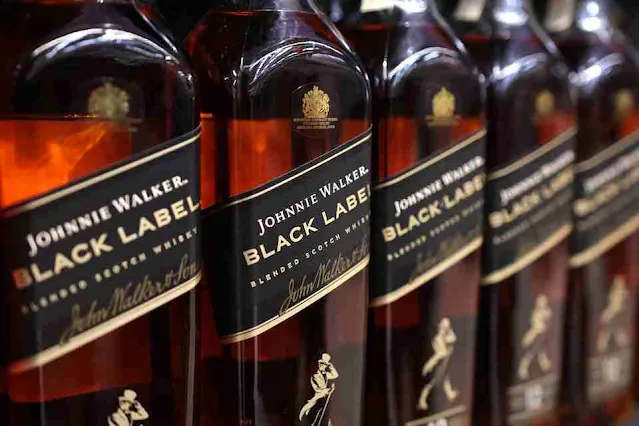Diageo withdraws medium-term sales growth target amid uncertainty
Macroeconomic and geopolitical challenges impact Diageo’s growth forecast.
 |
| Johnnie Walker bottles are displayed on a supermarket shelf in Sarajevo, Bosnia and Herzegovina, on October 29, 2024. Photo by Dado Ruvic/Reuters |
By Hayu Andini and Alana Salsabila
Diageo, the world’s leading spirits maker, announced on Tuesday that it is withdrawing its medium-term organic sales growth target due to increasing macroeconomic and geopolitical uncertainty. The company, known for Johnnie Walker whisky and Guinness beer, had previously projected an organic net sales growth of 5% to 7%, but shifting market conditions have forced a reassessment of its outlook.
CEO Debra Crew cited global economic pressures and the latest U.S. tariff announcements as factors contributing to the company’s cautious stance. “The newly announced tariffs in the U.S. add further complexity to our ability to provide updated forward guidance,” Crew said.
Diageo’s growth slowdown and market uncertainty
Despite the withdrawal of its sales target, Diageo reported a 1% increase in organic sales for the first half of its fiscal year. This modest growth surpassed analysts’ expectations of 0.4%, according to a company-compiled poll. However, the slower pace of recovery and the uncertain global economic landscape have raised concerns about Diageo’s future performance.
The company has faced multiple challenges in recent months, including fluctuating consumer demand, inflationary pressures, and shifting regulatory environments. Tariffs imposed by the U.S. government over the weekend have added another layer of uncertainty, particularly for Diageo’s premium spirits business, which relies heavily on the American market.
The decision to withdraw its medium-term target signals a more cautious approach as Diageo navigates a volatile global market. Investors and industry analysts will closely watch how the company adapts to these challenges while maintaining its position as a global leader in the spirits industry.
Impact of U.S. tariffs and global economic conditions
The newly imposed U.S. tariffs on imported goods, including spirits, could pose significant risks to Diageo’s revenue streams. The American market is one of the company’s largest and most profitable, and any additional costs resulting from trade restrictions could impact pricing strategies and consumer demand.
Beyond the tariff concerns, Diageo is also grappling with broader economic headwinds. Rising interest rates, inflationary pressures, and slowing global growth have created a difficult environment for consumer goods companies. While premium spirits brands typically perform well even during economic downturns, shifts in consumer behavior and discretionary spending patterns could influence future sales.
Diageo’s competitors, including Pernod Ricard and Brown-Forman, are facing similar challenges. The industry as a whole is adjusting to changing market conditions, with many companies reassessing their financial outlooks for the coming years.
Diageo’s strategy for navigating uncertainty
As the company deals with macroeconomic pressures, it is likely to focus on operational efficiency and brand resilience. Diageo has historically maintained strong brand equity and a diverse product portfolio, allowing it to withstand market fluctuations better than some competitors.
The company’s long-term strategy includes continued investment in its premium and ultra-premium brands, leveraging digital marketing and direct-to-consumer channels, and optimizing its supply chain to manage costs. Additionally, Diageo is expected to explore new growth opportunities in emerging markets, where demand for premium spirits is rising.
While the immediate withdrawal of its sales target reflects short-term caution, Diageo remains committed to delivering shareholder value and sustaining its leadership in the spirits industry. The company’s ability to adapt to evolving economic conditions will be crucial in determining its future success.
Diageo’s position in a changing market
Diageo’s decision to pull its medium-term growth forecast underscores the unpredictable nature of today’s global business landscape. As inflation, interest rates, and trade policies continue to shift, companies in the consumer goods sector must remain agile and responsive.
For Diageo, the focus will likely remain on sustaining brand strength, managing costs, and exploring new market opportunities. Investors and stakeholders will look for further updates in the coming months, particularly as the company navigates the impact of U.S. tariffs and broader economic trends.
Despite the current challenges, Diageo’s resilience as a global spirits leader positions it well for long-term growth, provided it can successfully adapt to the evolving market landscape.

Post a Comment for "Diageo withdraws medium-term sales growth target amid uncertainty"